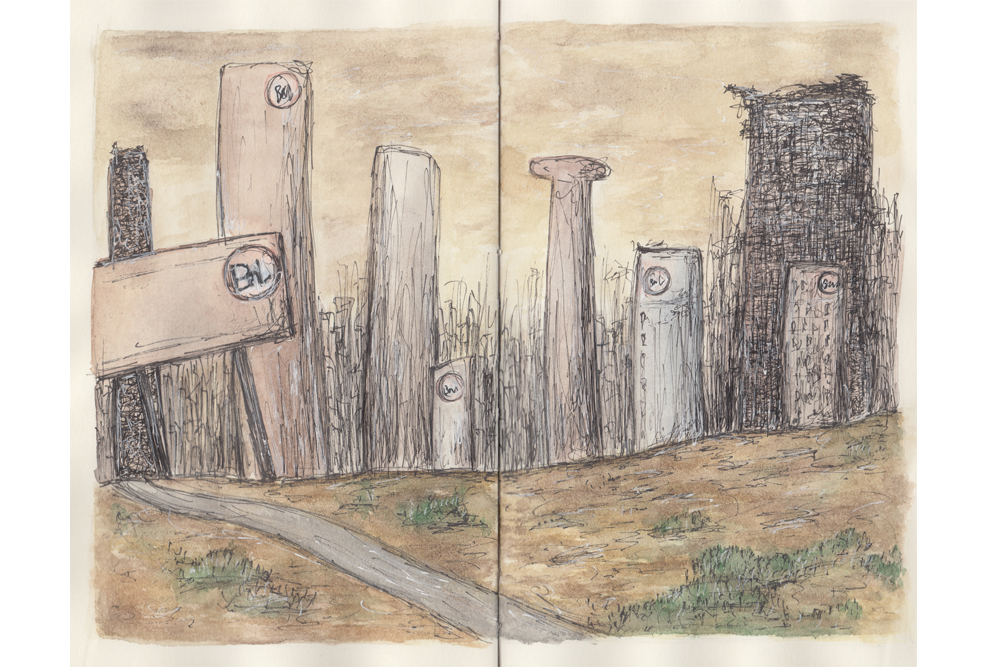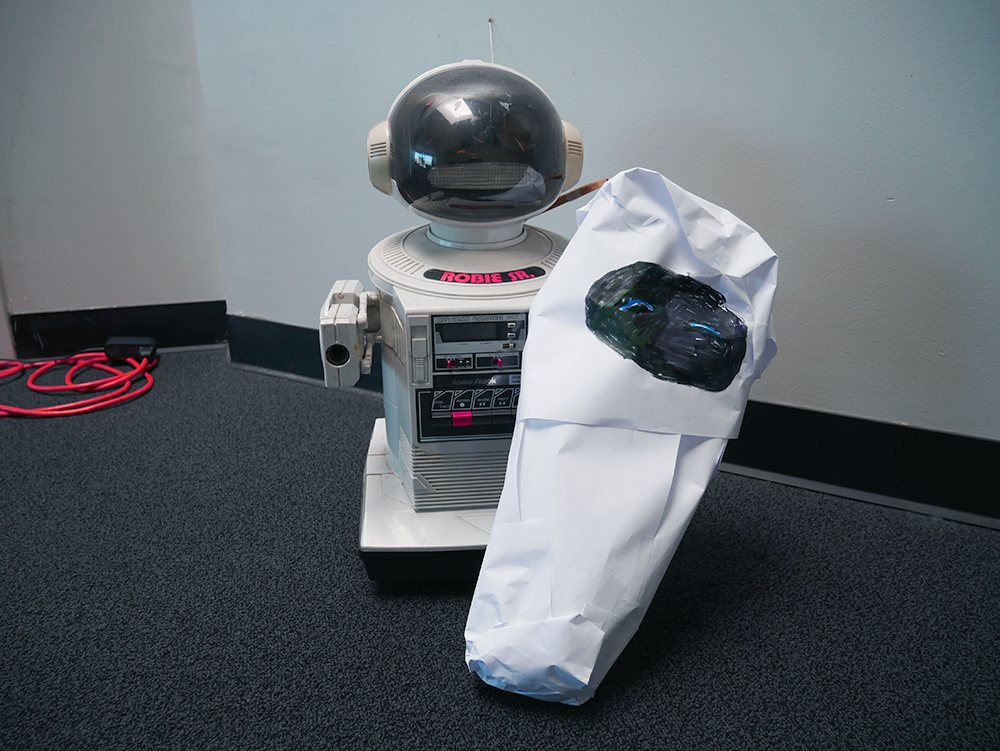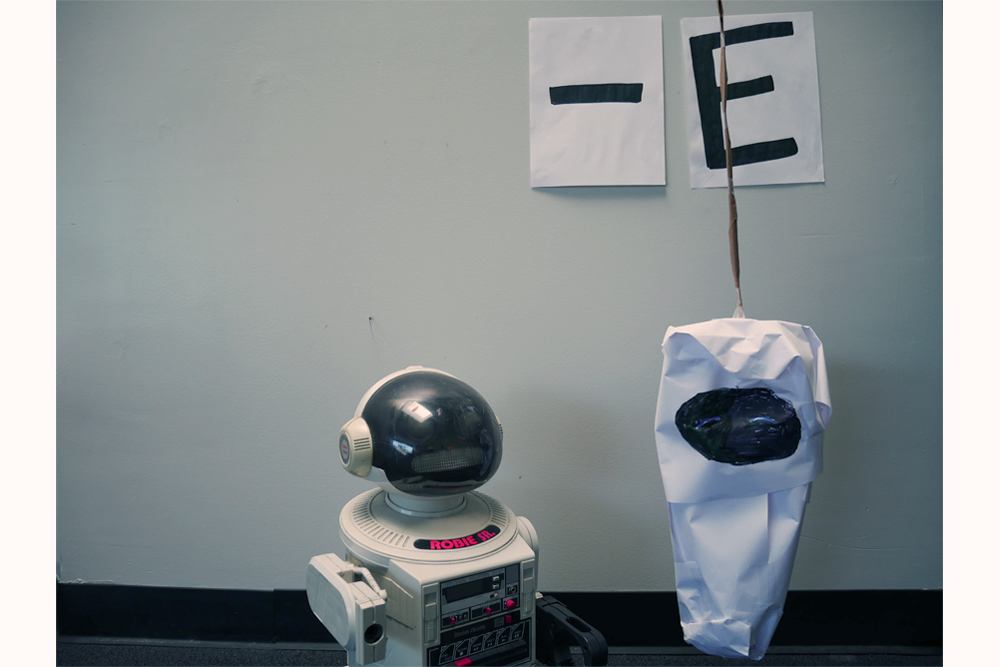WALL-E, one of my all time favorite Disney Pixar movies, depicts our home planet, Earth, as a desolate wasteland rendered unlivable by the immense amount of trash and pollution which accumulated over the years. Now, Earth’s citizens have to travel aboard the AXIOM until their problem is “fixed.” Yes, I understand that this is my second environmental movie for my column, but trust me, there is a much deeper meaning that connects human life and technology within this film that needs to be discussed. Deepwater Horizon talked about the ways that human occurrences can affect the lives and futures of people, animals, and the environment, but WALL-E has a much more complex interpretation: this amazingly animated movie, one that does not require much dialogue to get its point across, highlights the need for people to wake up and realize that they can not run away from the past, and instead, must confront it head on and learn as much as possible from their past indifferences. Now, for the very last time, I hope you enjoy the tellings of my Wall-E analysis with some delicious snacks, a comfortable environment, and most importantly, an open mind.
Imagine yourself living in a brand new house. Now, imagine that this house—one that protects you, nourishes you, and helps you grow—slowly disintegrates to the point of no return because you, the owner, neglected to make sure that you were maintaining the structure of the building itself, the cleanliness of its surroundings, and the overall positive “energy” of its inhabitants. That’s right. This home I am referring to is none other than the very Earth that is depicted in the animated world of WALL-E.
As technology develops, so does society right? That’s what most people would think; however, in the case of WALL-E, technology seems to, instead, have a detrimental effect on the growth and development of society. These humans, so focused on getting the latest gadgets, clothes, or devices, ultimately create a cycle of buying new products and throwing out their old products. (Sound familiar?) However, by doing this, these humans have wasted so many of their planet’s resources and polluted the water, soil, and sky with a myriad of trash and unwanted goods.

This movie takes place in two separate locations—one on Earth and one aboard the AXIOM—that highlight the key components of human overindulgence. A once luscious and diverse ecosystem, Earth has been warped into an unrecognizable wasteland. In the lead up to this, humans clearly culminated technology to a very defining point, but this pinnacle of development, one that should supposedly progress human civilization, was instead, its downfall. Literal skyscrapers of trash, consumer goods, and unwanted products line the cityscape. Billboards advertising and inviting customers to continuously purchase their goods shine brightly amongst the bleak environment.
This all would have been fine, I believe, if the humans realized what they were doing and decided to stop their strive towards consumer self-fulfillment, but they didn’t. Their laziness and lack of attention to their surroundings, caused by their privileged lifestyles, ultimately caused them to turn to the only thing they know: technology. Using their technological access, they created machines instead to do the bidding of humans. With the deployment of the Waste Allocation Load Lifter Earth- Class, or WALL-E’s for short, the humans abandoned their homes and problems—ones that their selfishness created—and left for an undeserved vacation.
In the film, the AXIOM, the vessel that the humans board to escape their problems and enjoy a good life, develops a greater need for technological consumption, creating an ultimately useless and lazy society. The definition of axiom (according to Dictionary.com) is “a universally accepted principle or truth.” People have become so accustomed to a certain lifestyle created by the use and benefits of technology that they take everything, such as their home planet, for granted. They believe that they are destined for greatness, for success, and ultimately, for happiness, without even having to work for it. Machines and technology have essentially taken control of people’s everyday lives, and these people are simply losing autonomy with simple things such as walking everywhere they go. They’ve become so consumed by the need and use of technology that they’re essentially lifeless puppets of the current phases or trends. These issues, such as the need to become one with the crowd or to blindly continue into the future with no regard for the surroundings, have corrupted society into believing that everything is and will always be OK.

It’s true that we are currently living in a “golden age” of technology, with thousands of companies spewing out different types of products. This should mean that, as a society, we are progressing into the future, yet, it feels that we are simply creating a selfish, greedy, and overindulgent society that doesn’t pay enough attention to the many issues that are currently occurring on Earth. I truly believe that technology is a good thing, but when it is used in the wrong hands to simply benefit oneself, it can create catastrophic damage to the global community. Many companies are heeding the call to improve their technological standards to help move our planet forward. Machines and items like electric cars, solar panels, even reusable bags and water bottles, are good steps in creating an environmentally safe community, yet, not everyone on Earth sees that there must be a safe way to use technology to move humanity forward. They are so deluded by the concept of, “Oh, it’s fine, the next generation will deal with it,” or “What are you talking about? Everything’s OK,” that they refuse to hear the call towards action.
It’s important to understand that this Earth, the one that you, the reader, and I, the writer, is home to seven-plus billion people, 200,000-plus species of fish, 60,000-plus species of trees, and so much more. We can’t be selfish and think that human problems are only human problems because they simply aren’t—whatever technological improvement that causes harm to the environment will in turn also harm us. Many people are starting to understand this, with environmental organizations all around the world lobbying and telling their governments that more needs to be done to protect the environment. Companies such as Patagonia are teaching their customers about issues such as President Trump’s threats to end protection for 27 national monuments. Just as a seed develops into an almighty tree, humans under new grassroots movements are starting to learn and spread these ideas to many, and as a collective group, are starting to influence politics and important legislation. Earth needs looking after, and we humans—ones that are simply blessed to even be living in such a beautiful place—should heed the call to protect it. Take that first step even if no one else is doing it. Don’t allow yourself to get consumed by the idea of the bystander effect, and realize that there is a difference between surviving and living. We can create a brand new start if everyone works towards that ultimate goal of a harmony between humans, technology, the environment, and home.







